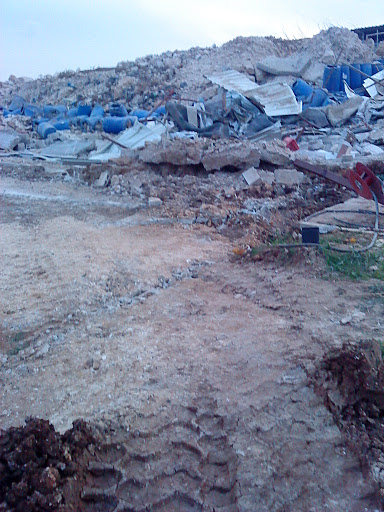Tag: Apartheid Wall
-
Anata falls victim to militarized, illegal settlement once again
by Jenna Bereld 26 October 2011 | International Solidarity Movement, West Bank When Mohammad woke up on Tuesday, he still did not know about the Israeli forces or the bulldozers that were on their way to uproot his trees and demolish his entire farm. But before the day was over, all of his property was erased and…
-
The global intifada
16 October 2011 | Palestinian Grassroots Anti-Apartheid Wall Campaign, Jamal Juma Palestine is an international symbol of struggle against occupation, racism, and colonialism. On October 15, 2011 the world gathers in what some have called a global intifada, to stand up against imperialism. The first time an international activist came up to me and sincerely…
-
First time welcomed into Ni’lin
23 September 2011 | International Solidarity Movement, West Bank At 1 pm the demonstration in Ni’lin started. 4 ISM volunteers helped to protest against the illegal, Israeli Apartheid Aall. After reaching the wall, the Israel army attacked us by using tears gas and rubber bullets. Some local protesters were hurt by the rubber bullets. After…

